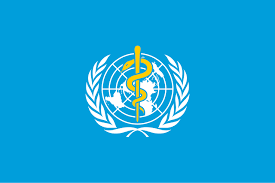
Lebanon Confirms First Cholera Case Since 2022 Amid Rising Conflict
On October 16, Lebanon’s Ministry of Public Health confirmed a new cholera case, reigniting concerns about public health as the country grapples with ongoing conflict. The case was detected in Akkar governorate in northern Lebanon, marking the first infection since the previous outbreak, which lasted from October 2022 to June 2023, was officially declared over.
Health authorities have promptly initiated investigations to assess the spread of the disease. Samples are being collected from the patient’s contacts, and water sources in the area are being tested for potential contamination.
In a statement, Dr. Abdinasir Abubakar, WHO Representative in Lebanon, emphasized the risks associated with Lebanon’s deteriorating water and sanitation infrastructure. “WHO has been sounding the alarm on the risk of emerging infectious diseases like cholera resurfacing in Lebanon as a result of poor water and sanitation conditions and the impact of the current conflict,” said Dr. Abubakar. He stressed that the immediate focus is on enhancing disease surveillance and improving water sanitation to contain the spread.
Cholera Resurgence Amid Conflict and Overburdened Systems
This resurgence comes as Lebanon’s healthcare system, already stretched thin by economic crises, faces additional pressure from escalating violence. Overcrowded shelters housing displaced persons lack adequate sanitation facilities, significantly increasing the risk of cholera outbreaks.
The World Health Organization (WHO) is collaborating with the Ministry of Public Health and various partners to control the spread of the disease, leveraging the experience from the previous outbreak. The 2022-2023 outbreak, Lebanon’s first in over 30 years, was driven by severe economic decline and lack of access to clean water, leading to over 8,000 suspected cases, 671 confirmed cases, and 23 deaths.
Vaccination Efforts Disrupted by Conflict
In a bid to preempt future outbreaks, Lebanon’s Ministry of Public Health launched a nationwide oral cholera vaccination campaign in August, targeting 350,000 residents in high-risk areas. This campaign, conducted in partnership with WHO, UNHCR, UNICEF, and other organizations, was focused on five of Lebanon’s eight governorates. However, the initiative was interrupted by the recent surge in violence, leaving many areas still vulnerable.
WHO Mobilises Response
Following the new cholera case, WHO swiftly activated a cholera preparedness and response plan, which includes enhanced surveillance and contact tracing, environmental monitoring, and water sampling. The organization is also ramping up laboratory testing and infection prevention measures at designated treatment centers.
To support the response, WHO delivered a shipment of over 116 metric tons of essential health supplies to Beirut in early October, including cholera-specific resources. The organization will continue procuring and prepositioning vital medical supplies.
WHO and the Ministry of Public Health are also considering the reintroduction of oral cholera vaccines in high-risk areas to curb the spread as quickly as possible. Meanwhile, Lebanon’s Public Health Emergency Operations Centre is coordinating response activities at both the national and subnational levels.
Prioritising Public Health Amid the Crisis
The response plan, developed by WHO and its partners, focuses not only on cholera containment but also on maintaining essential health services across Lebanon. Efforts are being made to ensure uninterrupted healthcare delivery while strengthening community awareness about cholera symptoms, risk factors, and preventive measures.
By implementing this comprehensive cholera preparedness and response plan, Lebanon aims to reduce the burden of the disease, limit its transmission, and protect vulnerable communities from further health risks during this period of crisis.